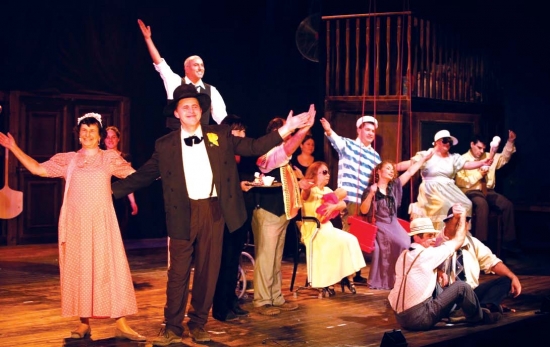
We recently attended a show at the Nalaga’at Center in the dilapidated Jaffa port, located in the southern quarter of Tel Aviv-Jaffa. Housed in a renovated warehouse, the center is part of the rehabilitation of what was once Palestine’s main seaport. The port area is eventually expected to be a big tourist draw, similar to the booming Tel Aviv port in the northern part of the city.
The "Nalaga’at" nonprofit organization was established in December 2007. The center is comprised of the "Nalaga’at" Theater, home to the deaf blind acting ensemble; Café Kapish, with its deaf waiters and BlackOut, the pitch-black restaurant with its staff of blind waiters. The "Nalaga’at" Center currently employs some 70 people, most of whom are deaf, blind or deaf-blind.
At the center, whose name means "please do touch" in Hebrew, the idea is to turn "normal" life upside down by empowering deaf and blind people and pushing seeing and hearing customers beyond their comfort zone. Billed as the world's first professional deaf-blind theater company, most of its actors are also mute. Touch is the primary mode of communication, though a few of the actors have enough residual vision to read sign language in Hebrew or Russian.
Adina Tal, founder and director of Nalaga’at Center, says: “These deaf-blind individuals, who, all their life, had been dependent on society and assisted, were all of a sudden in an entirely different situation. Standing on the stage, they were no longer ‘the poor ones’, ‘requesting’ commiseration, but those who were in the position to ‘give’, offering their audience the gift of art.”
The actors are of various origins, but they were mostly born deaf and then became blind through illness. Igor and Yuri, brothers, emigrated from the former Soviet Union (FSU). Igor dreams of watching TV. Yuri is married with two daughters and especially enjoys reading. Another Yuri, Marc and Genia are also emigrants from the FSU. Nurani emigrated from Iran. Rafi and Itzik were born in Israel, as were sisters Zipora and Bat Sheva. Shoshana came to Israel from Romania and dreams of joining others in normal conversation.
The current show, “Not by Bread Alone” is being presented all summer to sold-out audiences. Eleven deaf-blind actors take the audience on a magical tour in the districts of their inner world; the world of darkness, silence and … bread. As the process of bread-making unfolds on stage (the dough is actually being kneaded, raised and baked) a unique encounter occurs between actors and audience. Together they reenact vivid or distant memories, recall forgotten dreams and joyful moments and “touch the divine spark” present in everyone.
The actors take the spectators into those magical moments between reality and fantasy, between grandeur and ridicule, and eventually return to the basic meaning of bread as a symbol of everyone’s longing for a home. “[Man lives] Not by Bread Alone” – the actors declare, repeatedly emphasizing the importance of their interaction with the audience and their need for relationships, which is more crucial to us all than the need for bread.
While all the actors were accomplished, several stood out. Itzik Hanuna, who can speak, was the master of ceremonies, usually seated off to the side typing on his Braille typewriter. Born blind, he became deaf at age 11 after being ill with meningitis. He writes poetry on his typewriter and is able to recite it in his heartrending voice. His method of “hearing” is for a translator to touch specific finger joints on Itzik’s hands (at blazing speed) to spell out what is transpiring.
Bat Sheva Ravenseri, a mother of three, is a beautiful woman with an aristocratic but knowing air. "Before the theater, I lived a regular deaf-blind life in darkness and silence. I didn't have a future," she said through a translator, who converted questions into sign language by stroking and squeezing her hands. "I want to show that blind and deaf people also have a lot of strength and love to give," said Ravenseri, who wore an elegant purple dress.
Marc Yarosky has two daughters. (All of the children mentioned can see and hear.) Blessed with a mischievous smile and sparkling eyes, Marc has a gift for physical comedy. He says that he takes pride in being a real gentleman. His stage presence was such that you wouldn’t even know that he is visually impaired.
“Not by Bread Alone” is inspirational, to say the least. I defy anyone to feel sorry for themselves after seeing this show. Despite their disabilities, the actors are very professional and they manage to engender empathy in the audience who are able to follow the action on stage through Hebrew/English/Arabic subtitles and Hebrew sign language. Reflecting on the show, I felt that I’d been treated to a complete performance despite the fact that only a few other speaking actors had taken part.
Hopefully, Nalaga'at will prove to be a wonderful example to similar groups around the world. On subsequent visits we expect to visit the café which looked intriguing, and the BlackOut restaurant which has gained a reputation as an absolutely amazing experience. There are workshops in sign language, pottery and wine tasting – the latter two “in the dark”. Not the least of the accomplishments of the Nalaga’at Center is that it attracts a wide audience: Jews, Muslims and even illegal immigrants from North Africa. You can find out more about this unique facility at: www.nalagaat.org.il
Nalaga’at Center, Retsif Haaliya Hashniya, Jaffa Port; P.O.Box 6, Tel Aviv 68031 Tel 03 633 0805. Fax 03 682 3715 Email: info@nalagaat.org.il
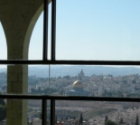 The Morman University Sunday Concert, with ESRA
The Morman University Sunday Concert, with ESRA 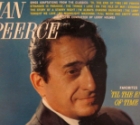 Congratulations to ESRA Rehovot on its 10th
Congratulations to ESRA Rehovot on its 10th 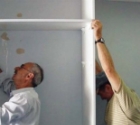 THANK YOU!
THANK YOU! Art from the Heart
Art from the Heart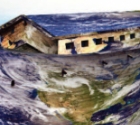 Jewish Art Returns to Jerusalem
Jewish Art Returns to Jerusalem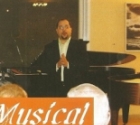 Musical Treats
Musical Treats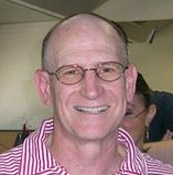 Steve Kramer
Steve Kramer